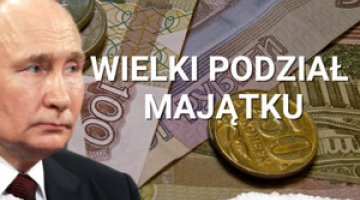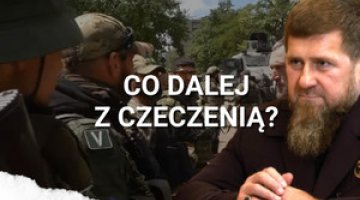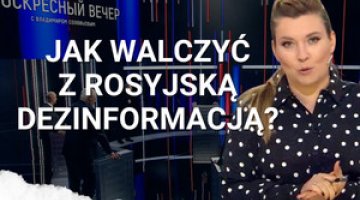The reaction of the Russian state to the terrorist attack on Domodedovo airport
On 24 January, at 4.32 pm Moscow time, a terrorist attack took place in the arrivals hall of the Domodedovo airport in Moscow. According to data from the Investigative Committee of the Russian Federation, 35 people died and more than 150 were injured. The choice of the most modern international airport in Moscow as the site of the attack suggests that the as yet unidentified organisers of the attack sought to strike at Russia’s international image.
The rescue action after the attack exposed the weaknesses of the institutions responsible for ensuring the security of the state; this has brought forth hitherto unprecedented criticism from President Dmitri Medvedev. The President's remarks attest to his concern about how ineffective the state’s structures are in a crisis. Medvedev’s action may also have been dictated by his desire to protect his image in the face of public resentment. This resentment has been revealed particularly clearly on the internet, which once again has proved to be the fastest and most complete source of information and comments in Russia, showing its potential for social mobilisation.
How the institutions of force reacted to the attack
According to the law enforcement authorities, the suicide bomber detonated an explosive payload of about 3-5 kg of TNT in the airport’s arrivals hall. The rescue action was initially carried out erratically, and only units of the emergency services participated at first. Evacuation from the airport was not organised, nor was passenger traffic halted. The police failed to ensure the rescue teams’ freedom of movement to the site of the event. A group of over 160 officers from the Ministry for Emergency Situations, which is responsible for coordinating rescue actions, arrived at the airport only after a long delay.
In the operational sphere, the investigation into the circumstances of the act of terrorism was led by the head of the Investigative Committee, Aleksandr Bastrykin. In Moscow reinforced security measures were introduced at all airports and main transport nodes (similar action was taken at airports throughout Russian territory).
Unlike the official position presented after previous attacks, blame was not placed on the representatives of terrorist organisations operating in the North Caucasus (representatives of the Investigative Committee withdrew an initial statement that the attacker’s appearance suggested that he was of Caucasian or Arabic origin). However, a "Caucasian trail" has most often been raised in unofficial information and comments, including the Internet. This suggests that the authorities wish to avoid a further escalation of anti-Caucasian feelings in Moscow [for more, see "The escalation of nationalist tensions in Russia"].
Political reaction
Immediately after the attack, President Medvedev ordered the introduction of a "special regime" at all airports, stations and large transport nodes; the setting up by the Investigative Committee of a special investigative group. He also ordered to inspect how legislative acts adopted after previous attacks were implemented, in particular those concerning transport security.
A new element in the President’s activities, in comparison with previous terrorist attacks, was placing the burden of responsibility for the failure directly on the institutions of force, above all the Federal Security Service (FSS), the Interior Ministry and the airport’s security staff. During meetings of the Board of the FSS on 25 January, Medvedev demanded that the head of the FSS, the Minister of Internal Affairs and the entire government determine the individual liability of persons guilty of negligence, and that the Prosecutor's Office and the Investigating Committee should bring those persons to criminal accountability. Medvedev instructed the Audit Chamber of the Russian Federation (the country’s supreme audit institution) to review the existing expenditure on the fight against terrorism. The next day, four mid-ranking officers of the Interior Ministry responsible for transport security were sacked.
Prime Minister Vladimir Putin was not officially involved in the coordination of the rescue actions, and refrained from wider public declarations. He made his first public statement only several hours after the attack, limiting himself to a meeting with the minister for health and welfare Tatiana Golikova, to whom he recommended taking care of the families of the dead and injured. On 25 January, he visited victims of the attack in a Moscow hospital.
Summary
The attack and the government’s reaction to it have revealed a range of weaknesses in the institutions responsible for ensuring the security of the state. This has been caused by a failure to observe a range of laws governing how to proceed in a crisis situation, indicating that the Russian legal system is often no more than a façade. In accordance with legislation passed in 2006, the coordinating authority for such services should be the National Anti-Terrorist Committee. However, at present, the President of the State delivers detailed orders directly to the heads of each of the institutions of force. This solution does not guarantee smooth cooperation between these departments at the operational activities stage.
For the first time, the institutions of force received extraordinary and unprecedented criticism from the head of state. The President stressed that despite the expansion of the FSS’ and the Interior Ministry’s powers, these bodies have been ineffective in combating terrorism. The already initiated staff changes in the institutions of force are unlikely to affect the highest-ranking personnel. It must be expected that the institutions of force will continue to treat the threat of terrorism as a pretext to extend control over public life in Russia and obtain additional financial resources from the state budget.
The President’s sharp criticism of the institutions of force and the actions he has taken can also be partially explained as an attempt to protect his own image. The attack on Domodedovo airport, which is the latest in a series of spectacular attacks on the Russian capital in recent years, has revealed public dissatisfaction arising from the state’s ineffective attempts to combat terrorism. Critical assessment of those activities is apparent on the Internet, especially in the dynamically growing blogosphere. The Internet has once again proved to be the fullest and most effectively reacting source of information, for example in comparison to Russian TV’s sluggish reaction to the events.





